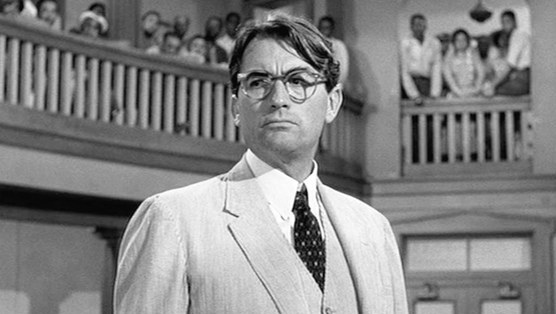In American schools, Harper Lee’s To Kill a Mockingbird is usually read in 8th or 9th grade.
As such, because students at that grade level have only had so much life experience, some of its more penetrating social critiques are often missed.
The other day I came across one of these critiques. The significance of the following passage from TKAM would have been largely lost on me when I read it as a freshman in high school. It’s from Atticus Finch’s closing speech at the trial of Tom Robinson—part that didn’t make it into the movie:
“One more thing, gentlemen, before I quit. Thomas Jefferson once said that all men are created equal, a phrase that the Yankees and the distaff side of the Executive branch in Washington are fond of hurling at us. There is a tendency in this year of grace, 1935, for certain people to use this phrase of context, to satisfy all conditions. The most ridiculous example I can think of is that people who run public education promote the stupid and idle along with the industrious—because all men are created equal, educators will gravely tell you, the children left behind suffer terrible feelings of inferiority. We know all men are not created equal in the sense some people would have us believe—some people are smarter than others, some people have more opportunity because they’re born with it, some men make more money than others, some ladies make better cake than others—some people are born gifted beyond the normal scope of men.”
In a portion that did make it into the move script, Atticus goes on to claim that America’s courts are “the great levelers,” and in them “all men are created equal.” This equality forever sought by America’s court system is symbolized by Lady Justice, blindfolded and holding scales.
But as Atticus Finch reminds us, life outside the courts does not operate according to this idealistic sense of equality.
Today, as then, the public education system is busy attempting to realize Horace Mann’s maxim that “education… is the great equalizer of the conditions of men.” In pursuing this utopian goal, its designers are forever tinkering with the system’s structure, its curriculum, its method of assessing students. As a last-ditch effort, they have separated students by age rather than ability, and socially promote students even when they have failed to master the required concepts.
But no matter what that system does, no matter how much tinkering is embarked upon, the fact pointed out by Atticus Finch remains: “Some people are smarter than others, some people have more opportunity because they’re born with it…” It’s impossible for the public education system to achieve either equality of outcomes or equality of conditions.
When it comes to education, simplistic understandings of “equality” will not do. Inevitably, it will result in a deficient education for all.
—
















Leave a Comment
Your email address will not be published. Required fields are marked with *